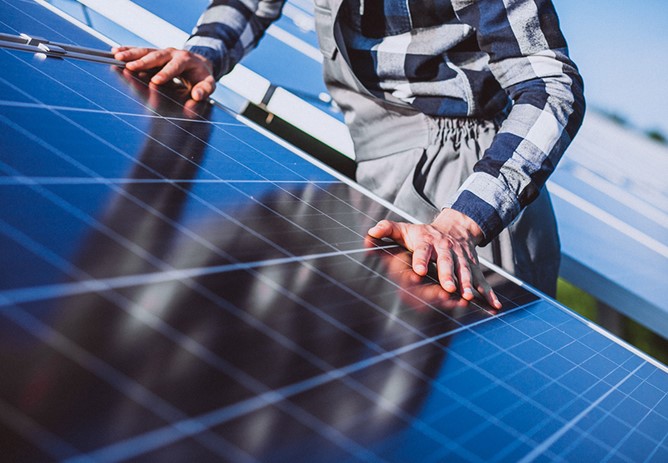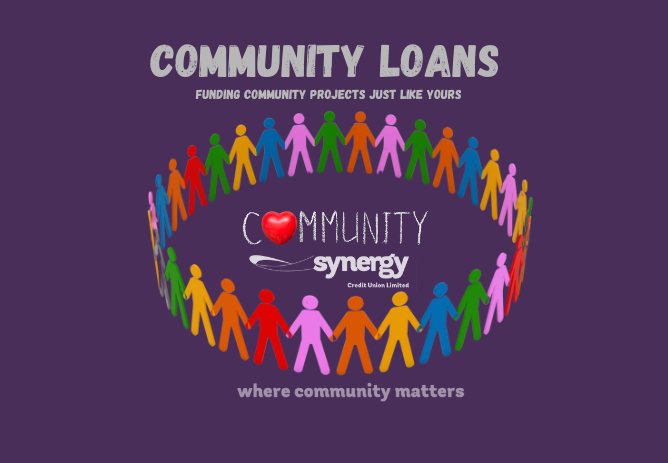26 August 2025
A guide to solar panels in Ireland
A Guide to Solar Panels for your home
You’ve heard about the financial benefits of solar panels, and you may have noticed more and more dotted across the roofs of Irish homes in recent years.
The heat during August may have got you thinking about them… are they really worth? Read on below
But perhaps you’re still not sold on them? Are solar panels, in a country where it rains over 30% of the year, worth it? There’s a lot to understand, too - from the science, the return of investment, to installation and cost.
The Irish League of Credit Unions have written a blog here that will cover the basics of solar panels; how they work, the different types you can choose from, how they’re installed - and why they might just be worth the hype.
Do solar panels work in Ireland?
Yes. The sun’s energy can penetrate even on a very cloudy day. Solar PV panels work by absorbing daylight and converting it into electricity or heat, and daylight levels in Ireland are very good. We have similar daylight hours to Germany, one of the biggest solar producers in the world. Indeed, researchers in University College Cork have concluded that a quarter of all the electricity needed by Irish households could be produced by putting solar panels on domestic rooftops. Around 75% of the annual energy from a solar PV system is produced from May-September The amount of electricity generated annually will depend on a range of factors, including the hardware chosen, the size of the system, the geographic location and the direction in which the panels are installed. According to the Sustainable Energy Authority of Ireland, a home solar PV system sized at 20 sq. m (~3kW) would generate around 2,600kWh of electricity a year if well-located, over 40% of the typical annual electricity demand of an Irish home.
See our SOLAR PV CALCULATOR HERE: https://synergycu.voltflo.com/
Are solar panels worth it in Ireland?
With the recent massive hike in Irish energy prices, more consumers are turning to alternative energy solutions. But how much can you save by investing in solar? Variables like panel size and number, whether or not you install a battery and how much electricity you use, can affect the total amount saved. You can use the SEAI’s Payback Calculator for Domestic Solar PV tool to work out how much you could save on your annual electricity bill by installing solar panels. For example, a homeowner based in Dublin with panels installed on a south facing roof can save up to €329 per year on their energy bills, with an estimated payback period of 11 years. This does not include the additional savings which can be achieved by using storage technologies. For the very first time, from June 2022, Irish consumers can choose to sell any surplus energy back to the national energy grid, which could further increase their savings.
Solar PV Panels vs Solar Thermal Panels
There are two main types of solar panels: solar photovoltaic (PV) panels and solar thermal panels. The main difference is that one produces electricity, while the other produces heat. Solar PV panels are commonly used in Ireland and have photovoltaic materials, or solar cells, that convert light into electricity. PV panels can fetch a higher grant value than thermals, (approx. €3,000 vs €1,200) are cheaper to install, and are more easily maintained. Unlike thermal panels, they can help power every electrical appliance in your home and allow you sell surplus energy back to the grid should you want to. Solar Thermal Panels use mirrors to direct sunlight toward a specific spot, where it is used to boil water. Thermal panels can be beneficial if you use a lot of hot water and have little or no roof space, as they are considerably smaller than PV panels. Sometimes, you can use both types of panels at the same time.
Solar Hot Water System
There are two ways to use solar panels to heat your water.
Solar Thermal Panels: The first, as we’ve mentioned, is to install a solar thermal panel, which will use sunlight to directly heat your water.
Solar Power Diverters: A solar panel power diverter takes surplus electricity from your solar PV panel and sends it to your immersion heater. Heated water can then be stored for many hours until it’s needed.
Using a Battery vs Solar Export Payments
Installing a battery allows you to store any surplus energy absorbed by your solar panels during the day. You can use it to run your household or charge your car, and you won’t have to rely on much energy from the grid - so you can be nearly self-reliant and fossil-free. From June 2022, you will be able to profit from any surplus energy you generate from your solar panels, by selling it back to your electricity supplier. Prices for exported electricity can be negotiated between electricity suppliers and consumers.
Solar Panel Installation
Choosing the right company to complete your solar panel installation is important. Ensure that the contractor you are employing is registered with SEAI. Companies are registered with SEAI to ensure consumer confidence, optimum quality of service and best practice. SEAI does not approve, guarantee or warranty a company or their works.
Qualified contractors are registered on the basis of their commitment to installing the works in accordance with the SEAI Domestic Technical Standards and Specification (DTSS) and adherence to the programme Code of Practice and Quality Assurance and Disciplinary Procedures (QADP).
Companies are also registered to ensure tax and insurance compliance. SEAI recommend you get at least four quotes from different companies, research the company online, ask to see references to past projects and/or speak to past customers of the company. SEAI strongly advise that you do not proceed with works unless a written contract is in place between you and your contractor. This affords you appropriate levels of consumer protection.
See the registered list here on SEAI website: https://www.seai.ie/grants/home-energy-grants/solar-electricity-grant/solar-pv-installers-and-c/
Your Credit Union has an arrangement with Energywise in Cork. This is a one-stop-shop that can carry out a full array of retrofit energy improvements: See here https://energywiseireland.ie/
A Green Home Improvement Loan
If you need any help to fund a warmer, greener home, take to us about our green home improvement loan today, its called Greenify, it also covers electric cars.
See details here: https://synergycu.ie/loans/greenify
Apply for the loan here: https://synergycu.ie/loans/loan-calculator







